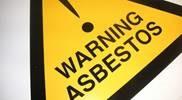Asbestos Awareness Course
At Highland Training Solutions, we deliver Asbestos Awareness training courses throughout the year in partnership with STS in Dingwall, just 15 minutes drive from Inverness. Alternatively, we can deliver this on site in the Highlands & Islands or anywhere across Scotland.
• Course Duration: Half Day (3.5hrs)
• Open Course Price: £95+VAT
• Maximum Delegate: 12
• Delivery Method: Classroom Based Theory
• Prerequisite: None
• Approved by: CITB
• Assessment: Multiple Choice Assessment
• Certification: Each successful delegate will receive a Certificate of Training (valid for 3 years)
• If you/your employer are a CITB Levy Payer, a CITB Grant Payment of £60 per person will be applied for on completion of this course.
Who should attend this course
Any persons who may disturb Asbestos such as General maintenance workers, Electricians, Plumbers, Joiners, Painters and Decorators, Plasterers, Construction workers, Roofers, Shop fitters, Gas fitters, Heating and ventilation engineers, Demolition workers, Telecommunication engineers, Fire/burglar alarm installers, Computer and data installers, Architects and Building surveyors
The Control of Asbestos Regulations 2012 apply to all types of work involving asbestos and materials containing asbestos. They place specific duties on employers and the self-employed. You must find out if materials containing asbestos are present. If possible, before you start, plan any work to avoid disturbing these materials. If you have to carry out work which may disturb materials containing asbestos, you must prevent exposure to asbestos fibres. Or where this is not reasonably practicable, reduce any exposure to as low as reasonably practicable by using appropriate control measures and having management systems in place. Anyone who is going to work on material containing asbestos must be suitably trained and supervised.
Asbestos Awareness Course
In House and Valid for 3 years
Course Content
• Overview of health and safety legislation
• The properties of asbestos
• Safe working practices
• Emergency procedures
• Hygiene requirements
• Decontamination procedures
• Waste handling procedures
• Medical examination requirements
• Control limits and the need for air monitoring
